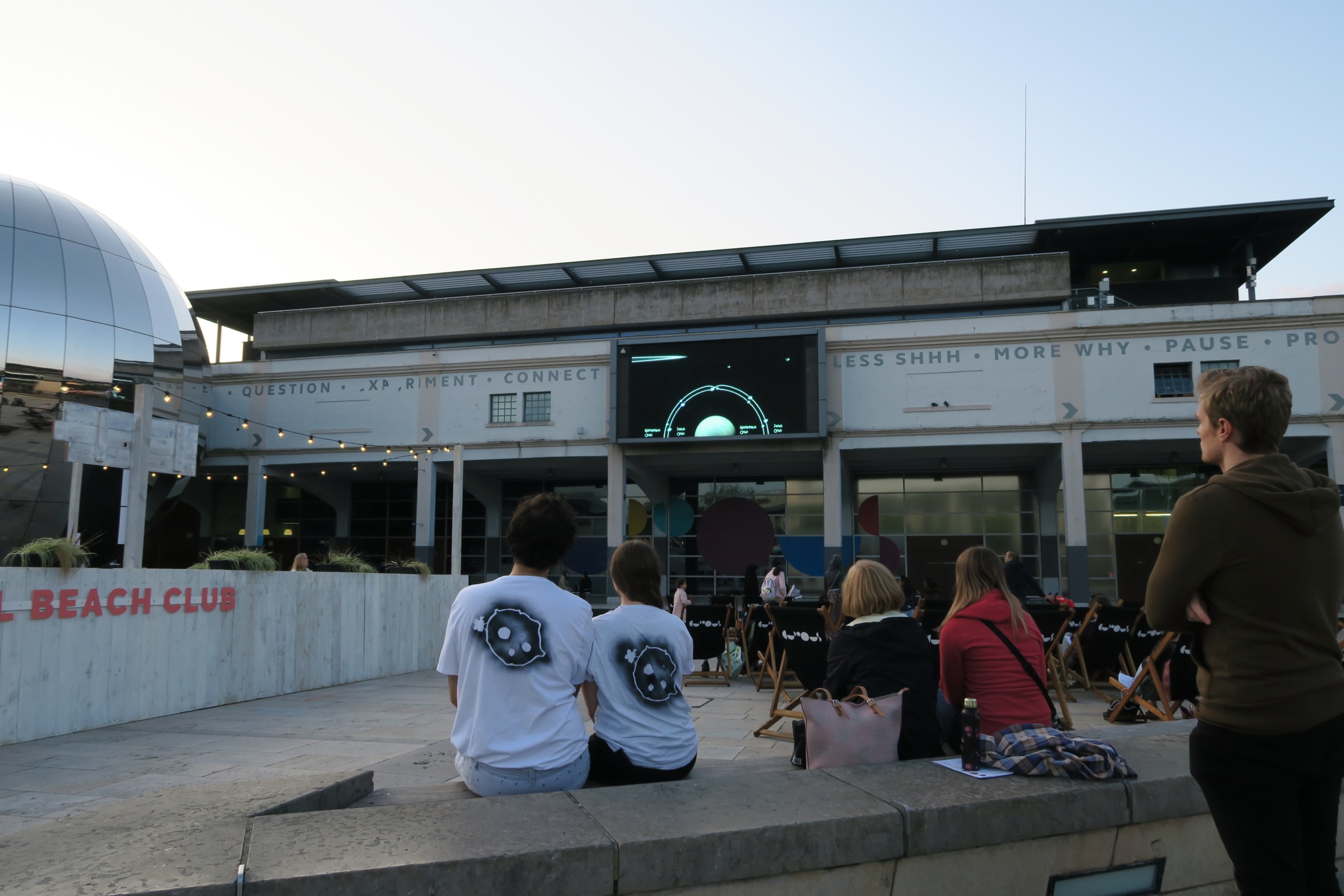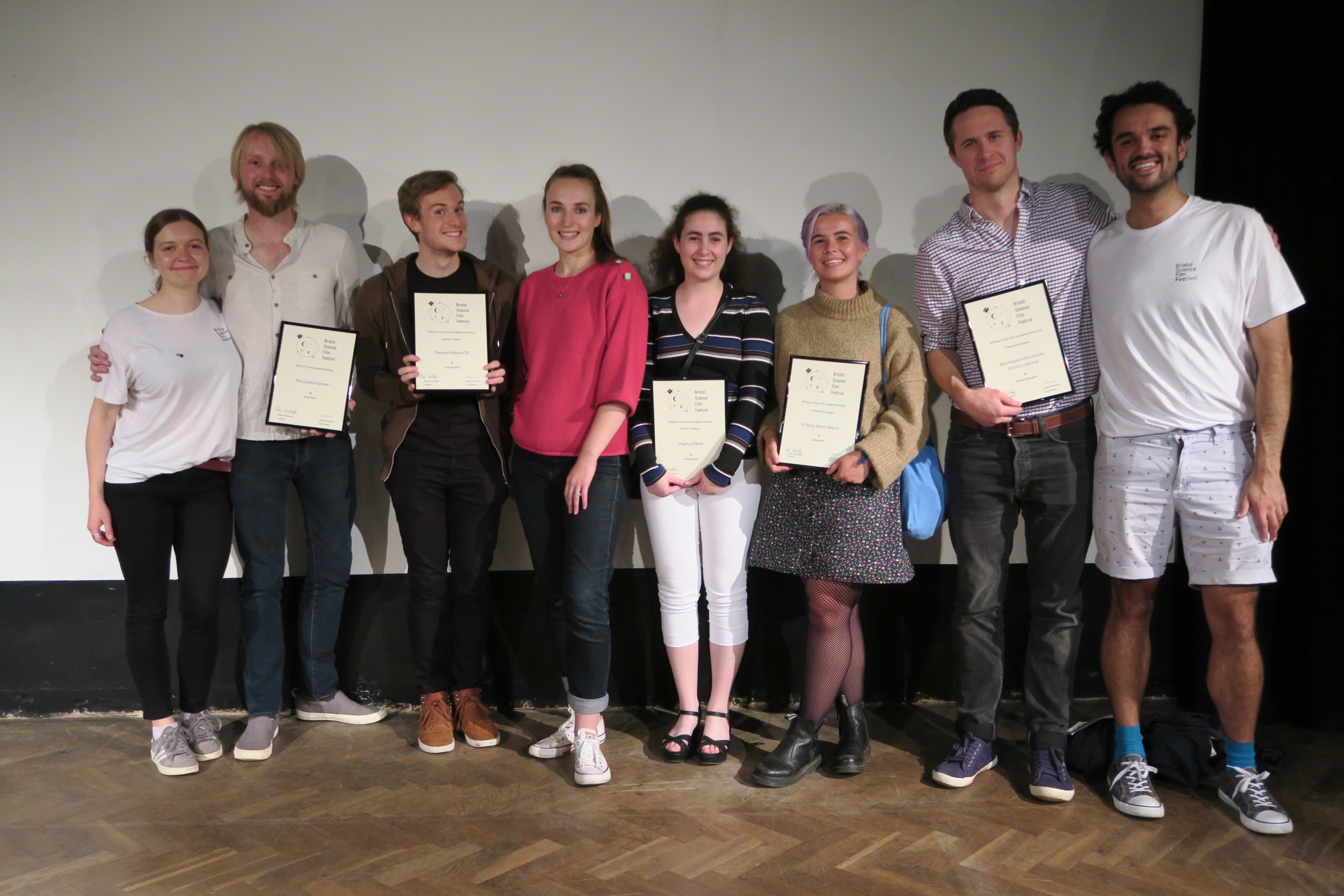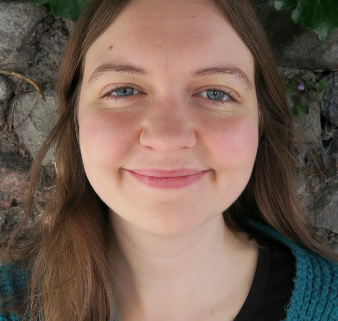Katherine MacInnes: “Film is a great and accessible form of science communication!”
Swimming with whale sharks or travelling through space – the Bristol Science Film Festival (6-7 June) promises to deliver all of the excitement! This year, due to the Covid-19 pandemic, the festival has been moved to an online event with two different themes – Earth and Environment on Saturday, and Technology and Us on Sunday.
Nat Rodrigues Lopes from The Crastina Crew reached out to Katherine MacInnes, one of the organizers, for a quick interview.
Hello, Katherine! Tell us a little more about the Bristol Science Film Festival, please.
The Bristol Science Film Festival runs an annual science film competition to support all those film-makers trying to tell the most interesting facts (or science fictions), no matter their resources. Normally, we screen our shortlisted films on the Big Screen in Bristol and at a special filmmakers’ screening in the Bristol Improv Theatre. We also run other film events during the Festival, including our Science vs Hollywood film night. This year (our fifth festival!!), due to coronavirus, we will be screening our shortlist online instead. Although it’s unfortunate that we won’t be able to meet our shortlisted filmmakers in person, I’m really looking forward to a broader range of people being able to watch our shortlist this year, including people from all over the world!!

2019 Big Screen screening at the Bristol Science Film Festival.
In which way do you think this event may be useful to early-career scientists who are interested in communication?
Film is a medium that so many of us connect over, whether by going to the movies, watching YouTube videos with friends, or sharing clips on Instagram. With the increasing prevalence of mini-movie-making machines (smartphones), we think film is a great and accessible form of science communication! Watching our shortlist can certainly inspire early-career scientists to communicate their own research in more creative and engaging ways. We always have a really broad range of film styles in the programme, which in the past have included animation, documentary, science poetry, dance, mockumentary, demonstrations and more! Each year our shortlisted films also give a lesson in science communication by bringing a sense of humour and emotion to the science which, from my own experiences, can be easy to forget about when focusing on your detailed experiments every day. These ingredients are immensely important, however, for telling a science story to a non-expert audience.
Please give three pieces of advice to someone who wants to use film as a medium to communicate science.
1) First, I would suggest distilling the science into its most important elements. You’re not giving a lecture, and you can’t deliver all the information there is on a topic to a non-expert audience. Choose your most important facts or messages before deciding how to communicate them!
2) Second, I suggest that you think about the filmmaking resources you have available to you. This will (or should!) change the filmmaking decisions you have to make, and you may have to be creative to work with what you have. For example, if you don’t have access to good sound equipment, it’s probably best to avoid interviewing someone outside, as there will be a lot of background noise that will affect the quality of finish. Instead, you could interview inside or use voiceovers when footage needs to be taken outdoors. Having said that, if you work or study in a university, there may be equipment available to hire cheaply from a film department or student society.
3) Third, you should make the process fun! Get creative, be original with the filmmaking style, play with different ideas. Some of my favourite films submitted to our Festival are amateur films because they often give you something new and interesting that you haven’t seen before.

Bristol Science Film Festival President, Robbie, and Vice-President Katherine with the 2019 festival winners at the filmmakers’ screening.
You can find more details and join the virtual festival here.
- Turning frustration into change: Jean-Sébastien Caux, founder of SciPost - August 9, 2021
- Dr Nicola Nugent: Publishing Manager at the Royal Society of Chemistry - December 7, 2020
- Public Engagement and Trust in Science: In Conversation with Dr. Farzana Meru - November 23, 2020
- Is the peer review process trustworthy? Perspectives by Dr. Jurado Sánchez - November 4, 2020
- Prof. Maria Baghramian: Policy, Expertise and Trust in Action - October 29, 2020
- Prof. Luke Drury: ‘When Experts Disagree’ - October 5, 2020
- Are we what we hear? A reflection on sound, identity and science communication - September 27, 2020
- Sign your Science - September 22, 2020
- Raven the Science Maven - August 18, 2020
- Dr Mark Temple: DNA Sonification or when Scientist are musicians - August 5, 2020





Leave a Reply
Want to join the discussion?Feel free to contribute!